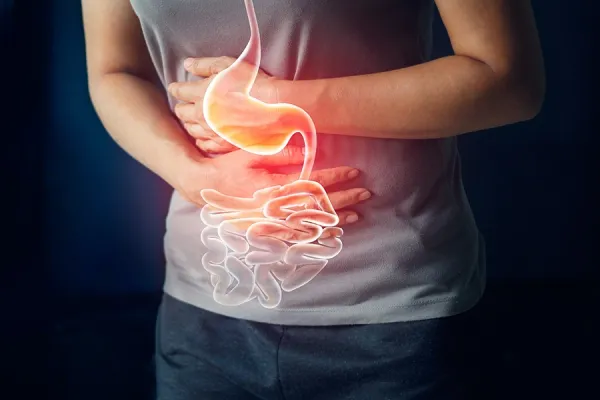Gastroenterology
About Reid Health Gastroenterology
At Reid Health Gastroenterology, our gastroenterologists specialize in the diagnosis, treatment and monitoring of diseases of the esophagus, stomach, small intestine, colon and rectum, pancreas, gallbladder, bile ducts, and liver.
Reid Health Gastroenterology is a service of Reid Hospital.

Reid Health Gastroenterology, a service of Reid Hospital - Services
Pillcam Capsule Endoscopy
Pillcam is a tool used in the detection of abnormalities of the small bowel. Indications include:
- Anemia
- G.I bleed
- Cohn's disease
- Suspected small bowel tumors
Inflammatory Bowel Disease
Treatment and management of:
- Crohn’s disease
- Ulcerative Colitis
Liver Disorders
Treatment and management of:
- Liver Cirrhosis
- Hepatitis B
- Hepatitis C
- Other acute and chronic liver disorders
Other GI disorders
Treatment and management of:
- Celiac Disease
- Video Capsule Endoscopy
Colonoscopy and Colorectal Cancer Screening
Treatment and management of:
- Endoscopic procedure used to diagnose/monitor diseases and conditions of the large bowel and distal portion of the small bowel. Learn more
Esophageal and Gastric Disorders
Treatment and management of:
- GERD
- Dysphagia
- Dyspepsia
- Gastric Ulcers
- GI Bleeding
- Esophageal Dysmotlity
Pancreato-biliary Disorders
Treatment and management of:
- Pacreato-biliary disorders
Endoscopic Ultrasound
Endoscopic ultrasound can provide diagnostic
information, disease staging and palliative
therapy for patients with many cancer types.
Colorectal Cancer & Colonoscopies
The benefits of colonoscopies may seem small compared to the big feeling of anxiety you may experience when you're due for one. However it's not so bad to get a colonoscopy. Getting one could even save your life. So if your doctor has prescribed the procedure especially if you have a family history of colon cancer don't put it off.

People at average risk for colon cancer
The American Cancer Society believes that preventing colorectal cancer (and not just finding it early) should be a major reason for getting tested.
Starting at age 45, men and women at average risk for developing colorectal cancer should use one of the screening tests below:
- Colonoscopy - performed every 10 years
- CT colonography (virtual colonoscopy) - performed every 5 years
- Flexible sigmoidoscopy - performed every 5 years
- Double-contrast barium enema - performed every 5 years
- Fecal immunochemical test (FIT) - performed every year
- Guaiac-based fecal occult blood test (gFOBT) - performed every year
- Stool DNA test - performed every 3 years
People at increased or high risk for colon cancer
If you are at an increased or high risk of colorectal cancer, you might need to start colorectal cancer screening before age 45 and/or be screened more often. The following conditions make your risk higher than average:
- A personal history of colorectal cancer or adenomatous polyps
- A personal history of inflammatory bowel disease (ulcerative colitis or Crohn's disease)
- A strong family history of colorectal cancer or polyps
- A known family history of a hereditary colorectal cancer syndrome
Reid Health Gastroenterology, a service of Reid Hospital
Hours
Monday: 8am - 4:30pm Tuesday: 8am - 4:30 pm Wednesday: 8am - 4:30pm Thursday: 8am - 4:30pm Friday: 8am - 4:30pmRequest An Appointment
-
Gastroesophageal reflux (GER) and gastroesophageal reflux disease (GERD) is common among individuals of all ages and is caused by acid or contents from the stomach rising...Read More
-
Colon cancer: what you need to know
Which health trend is grabbing your attention? Gluten-free diets, weight training, Zumba, protein supplements -- the list is endless of fad diets and exercise regimens for...Read More -
Benefits of colonoscopies: Here’s why they’re not so bad!
The benefits of colonoscopies may seem small compared to the big feeling of anxiety you may experience when you're due for one. However it's not so bad to get a...Read More




